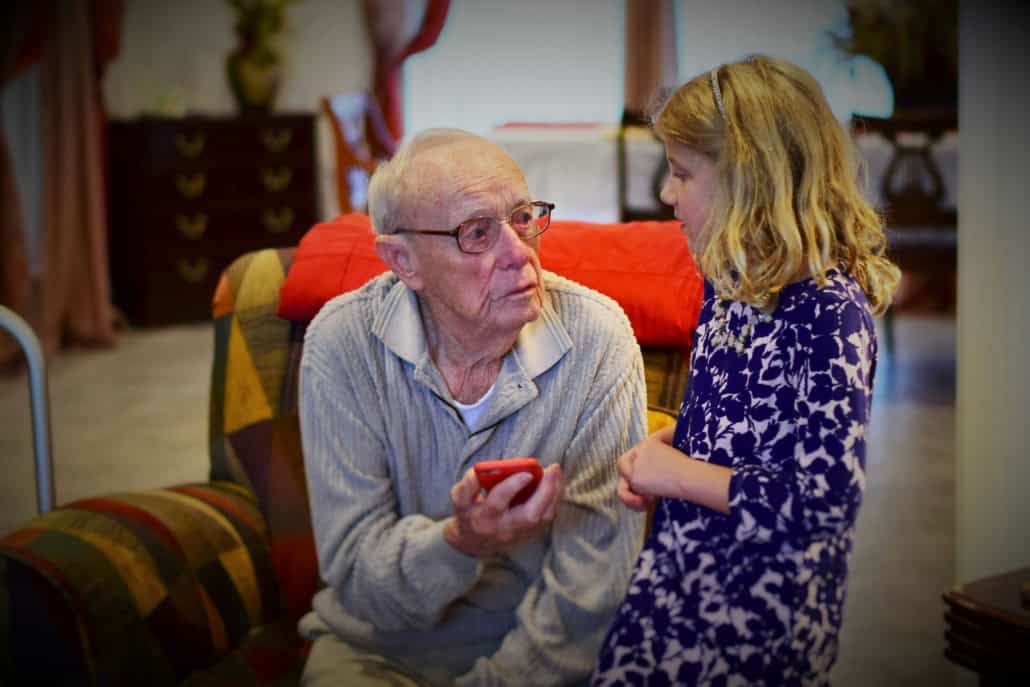|
Getting your Trinity Audio player ready...
|
Stop Kicking the Can Down the Road
When speaking about the kind of work I do with families, the way I explain myself is always evolving.
When I got into this a little over a decade ago, much of what I said had to do with how I was hoping to have a positive impact on client families, but it was more theoretical then.
As I have now served many families, the vocabulary and expressions I use today are based on the experience I’ve gained over the years, and are more refined.
As I use certain expressions with prospects, clients, and colleagues, I’m always conscious of their reactions, so I can see what lands well and what resonates best.
I’ve recently been using a bit of a one-two punch that I’m starting to really like, and so that’s where we’ll be going this week.
Having Important Conversations with Family
The first of those punches is to simply note the fact that families really just need to learn to have conversations with each other.
The idea of speaking together, regularly, about subjects that are important to their future, is actually relatively easy for people to grasp.
When you contrast that with not speaking, not sharing, not setting expectations, not asking questions, not learning to agree on how you want things to play out, it isn’t difficult to get people’s heads nodding.
So the first part of my explanation of the work I do is all about noting that families should be having more conversations about their future, especially as it relates to the ownership and management of their wealth.
More silence and secrecy is not what the doctor ordered.
This Isn’t a Surprise to Anyone
So if the first punch is about simply getting families to have more conversations, what’s the second punch?
I’m glad you asked.
After mentioning that conversations among family members is the key, I now always follow up with the fact that these families already know that they should be talking about these subjects.
“Every single one of these families already knows that they should be doing this”, I typically say.
And that of course begs the question about why they aren’t doing this, if they already know that they should?
Well, I also know that I should exercise more and eat less, and yet here we are.
Really? I Never Thought of That!
I can promise you that when speaking with family members about the importance of having more discussions about such matters, I have yet to have a response like “Really, we should be talking about this?”, or “Hmmm, I never thought of that”.
Everyone knows that such conversations would be useful to have, and yet what so often happens is that the leading generation frets about how to have such discussions productively, while the rising generation’s questions about their roles and expectations continue to go unanswered.
The simplest answers as to why families don’t have such conversations are that they don’t know how to start them, and that they fear they will not go well.
Many times it’s partly because such conversations were in fact attempted, but for any number of reasons, things did not go well, so any ideas of restarting the process are met with serious “second thoughts”.
An Unbiased Non-Family Facilitator to the Rescue
My Dad called a family meeting in 1985. It was not well received, as he decided to run it himself, and not to engage an unbiased non-family facilitator.
Our next family meeting did not occur until 2006, and that was only in response to his cancer diagnosis.
These meetings can get into some deep subjects, and families typically don’t have a lot of experience in handling such topics on their own.
A huge part of what a facilitator brings is to take charge of the process and make sure that everyone feels safe, so that everyone can feel heard.
This can take a few meetings to achieve, but a good facilitator will normalize this fact and accompany the family on their journey, at whatever speed and pace makes sense for them.
Strive for Progress, Not for Perfection
It takes time for families to learn how to be together while addressing important topics around the future of their wealth.
It can also take a while for them to recognize that they can in fact make progress on this journey.
A facilitator helps with all of this.






